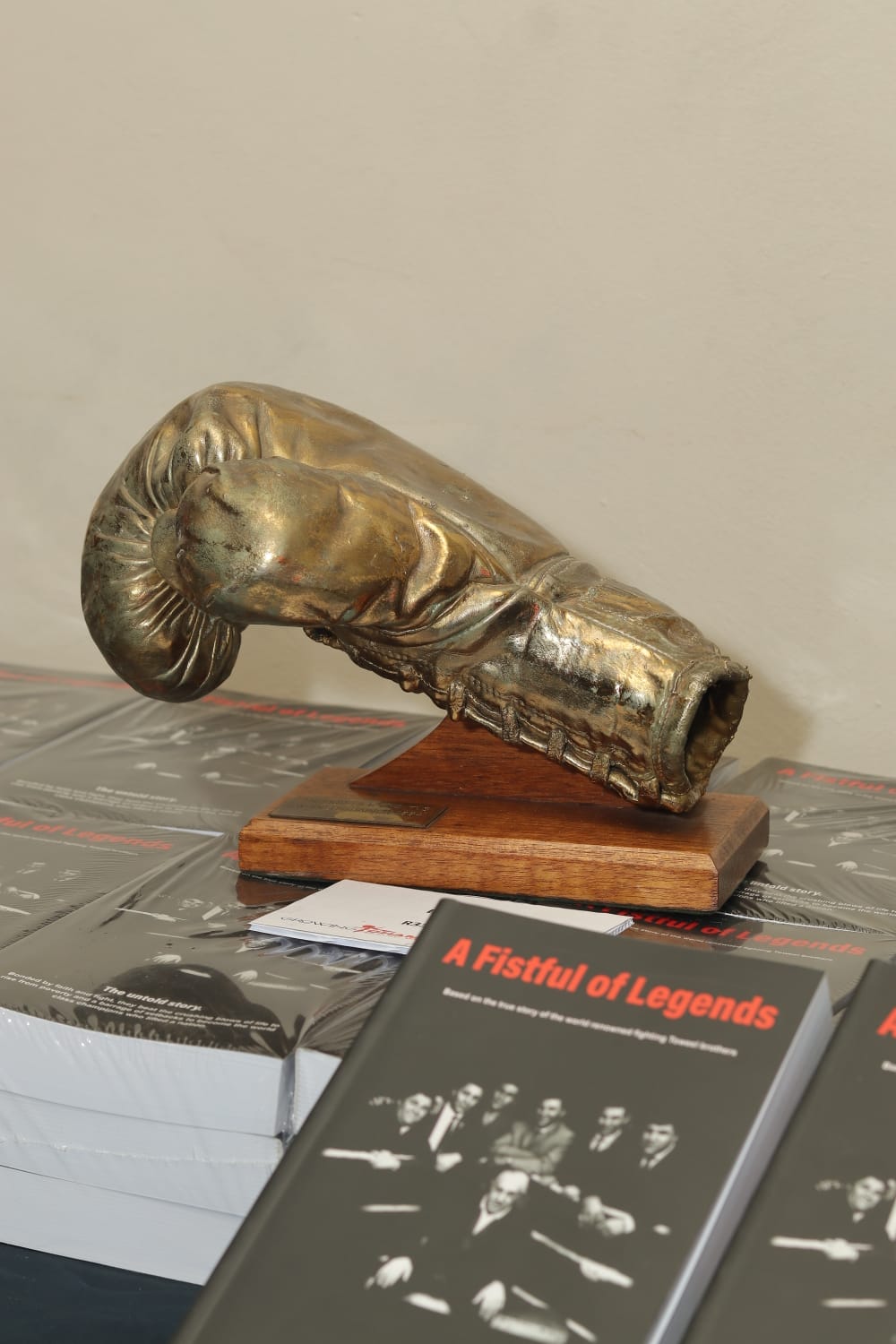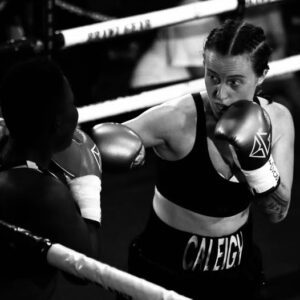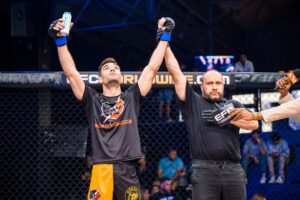Almost 30 years ago, in 1996, I found myself on a train from Newcastle, on the eastern coast of Australia, to Campbelltown, near Sydney.
Having stolen away from the buildup of Jan Bergman’s world championship fight against Kostya Tszyu, I was on a mission to meet Viccie Toweel. For company, I had the pleasure of the late Jim Strickland, cutman to Evander Holyfield among others, to regale me with boxing stories.
I duly arrived at Toweel’s modest suburban house, was invited in for a cup of tea and spent a pleasant hour in the company of South Africa’s first official world boxing champion, who had emigrated to Australia in the 1980s.
Toweel was a superstar in the 1950s, a champion in an era when that meant a great deal, and he had settled into a life of comfortable retirement. He was the most gracious man. I was thrilled to have met him.
Several weeks ago his family hosted a roomful of friends, media and associates for the launch of a Fistful of Legends, a lively memoir painstakingly compiled by Alida Toweel and Samantha Toweel-Moore.
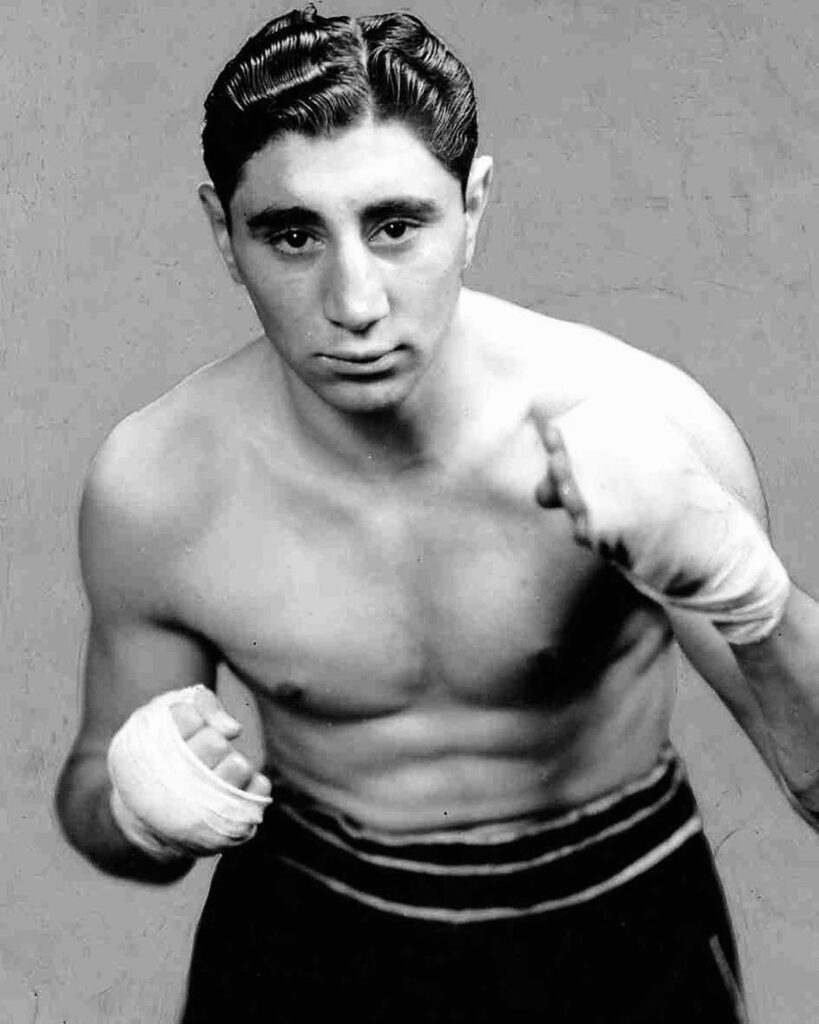
Viccie Toweel
It’s the story of the fighting Toweel clan, perhaps the most famous family in boxing on account of Vic winning a universal world title, Jimmy, the oldest of the fighting Toweels, capturing the South African lightweight title, and Willie fighting to a draw in a world title, winning an Empire title and four South African titles.
Then there was Maurice, crippled by polio, who battled through hardship to become an outstanding manager and promoter, all while in a wheelchair.
The journey began with 18-year-old Michael Joseph Toweel, known as “Papa Mike”, who was born in Lebanon and moved to South Africa with his mother as a young boy. A successful amateur, he could have represented South Africa at the 1924 Olympic Games in Paris, but his mother opposed the idea. Despite this, he became one of South Africa’s top trainers, guiding his sons to multiple championship titles despite problems with his vision.
Mike faced immense hardship, losing his first wife Dinah just before her 35th birthday, leaving him with seven children. He later married Mary, who supported the large family.
Mike’s determination led his son Jimmy to win the SA lightweight title and Vic to achieve unprecedented success, including the world bantamweight title in 1950, by defeating Manuel Ortiz.
Vic’s struggle to maintain his weight was well-documented, not least his training in a hot corrugated iron shed built by Mike and his sons. Alan Toweel, a promising welterweight who retired due to asthma, took over training his brothers Willie and Frazer, continuing the family’s boxing legacy.
Alan would later go on to train Pierre Coetzer, a top 10 heavyweight, a legacy that continues with his son, Alan jnr, now a top trainer.
Inevitably, such a sweeping story contains many strands, which Alida, widow of Willie, and their daughter, Samantha Toweel-Moore, have pulled together into a rollicking read (without a publisher, bless them). The language of the time, shot through with homespun Lebanese expressions, adds a richness and authenticity, so too the intimate conversations from the past. The life of immigrants is seldom easy and the Toweels had it hard in the early years. They were picked on and bullied, but the zeitgeist only hardened their resilience. Few messed with the Toweel boys.
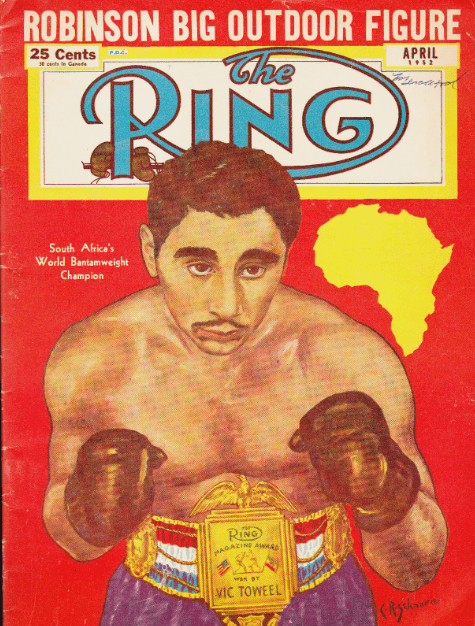
Although the family dynamics dominate the narrative, the writers cleverly weave in the boxing theme throughout. They were able to do so by trawling through scrap books and visiting the South African Archives in Pretoria, the Cullen Library Archives at the University of the Witwatersrand, the Daily Mail newspaper archives and by checking in with collectors of boxing memorabilia.
The high points (and low) of the Toweel narrative are told in immaculate detail, chiefly in Vic’s championship win, and Willie’s devastating fight against Hubert Essakow.
Vic and Manuel Ortiz, the champion, shared a deep respect for each other and when Ortiz arrived in SA, he came laden with gifts for his rival. Vic promptly invited him to stay at his home.
Such courtesies would not be considered in this age of smack talk and aggression.
Willie and Essakow shared a similar friendship, but all niceties were set aside when they boxed at the Johannesburg City Hall in 1956. Sadly, Essakow died from injuries suffered in the fight.
The outcome crushed Willie and he struggled for years to deal with the tragedy.
A Fistful of Legends won’t appeal to everyone – the story is dated, and much of it is deeply personal – but for anyone who appreciates the history and traditions of SA boxing, it is a welcome addition to the bookshelf.

